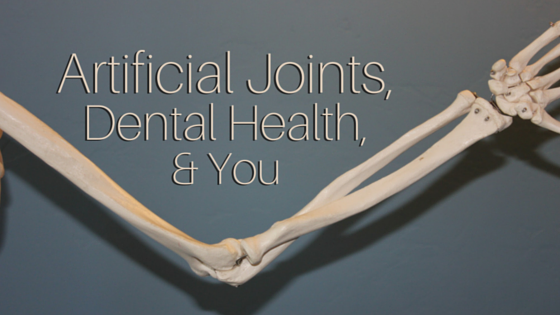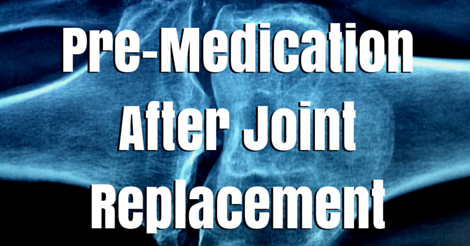
What is pre-medicating? What do artificial joints have to do with dental treatment? Why is this related to my oral health and not just overall health?
Good questions! Although artificial joints can seem like a far cry from concerns with your dental health, the two are more related than one may think. When it comes to artificial joints, there is an increased risk of infection due to the inorganic material in the body that should be taken into consideration. This is true from the time of placement, but it may also play a role with future medical treatments. It has long been suggested that pre-medicating should be a standard prerequisite to dental and other procedures, but what is pre-medicating and why would it help?
Pre-Medication Before Dental Procedures
Pre-medicating is the act of giving medication prior to a medical or dental procedure, which is done with the intention of staying ahead of potential infection problems. The theory is that bacteria from the mouth can enter the blood stream, and those with artificial joints are already more susceptible to infection. Pre-medication is meant to help mitigate this risk prior to the procedure to keep your overall health in check from start to finish.
Sounds simple – what’s the dilemma?
Your replacement joints may not affect treatments at all! Many question pre-medication as it does not appear to be necessary. In fact, the ADA directly states “In general, for patients with prosthetic joint implants, prophylactic antibiotics are not recommended prior to dental procedures to prevent prosthetic joint infection.” There is evidence that dental procedures are not associated with prosthetic joint implant infections, along with the fact that there is evidence to suggest that there are potential harms in taking medication when not completely necessary. As such, the risks do not outweigh the benefits of pre-medication. In individual cases, there may be exceptions; however, as a rule pre-medication is not a necessary prerequisite for effective dental treatments.
Please be sure to let us know if you have artificial joints, or any out of the ordinary medical circumstances. We will be sure to take them into consideration when it comes to developing your treatment plan. For the most part, your artificial joints will not require special treatment on your end – we can treat you as we would any other patient to keep your smile looking sharp!
Coastal Connecticut Dentistry
112 Cross Road
Waterford, CT 06385
Phone: 860-447-1787


